People Who Stop Taking Good Care Of Themselves As They Get Older Usually Have These 11 Reasons
It's possible to overcome the misguided guilt of self-care.
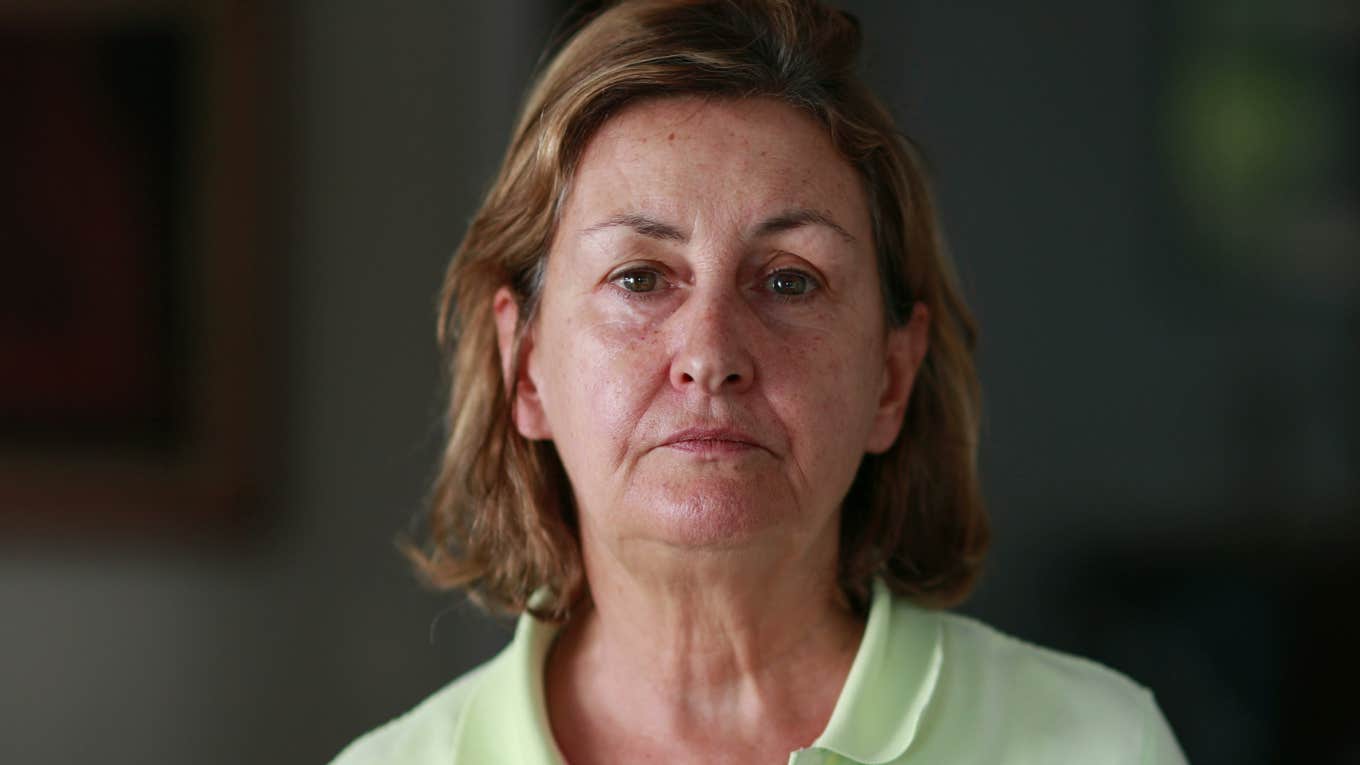 True Touch Lifestyle | Shutterstock
True Touch Lifestyle | Shutterstock Considering older people are most susceptible to the consequences of social isolation and feelings of loneliness, it's not entirely surprising that many of them are forgoing self-care and avoiding healthier routines. They're coping with the emotional turmoil of their circumstances. And while the reasons people who stop taking good care of themselves as they get older usually have are personal, there are a number of other ways aging demographics are discouraged from engaging in self-care.
Even if it's a simple task like brushing your teeth or making a nutritious meal, taking care of yourself as you get older can be harder than you think. From physical limitations to personal time management, it's important to take an empathetic approach to both acknowledging and discussing these reasons, as everyone will grapple with similar problems and challenges at some point in their lives.
Here are 11 reasons people who stop taking good care of themselves as they get older usually have
1. They have a smaller support system
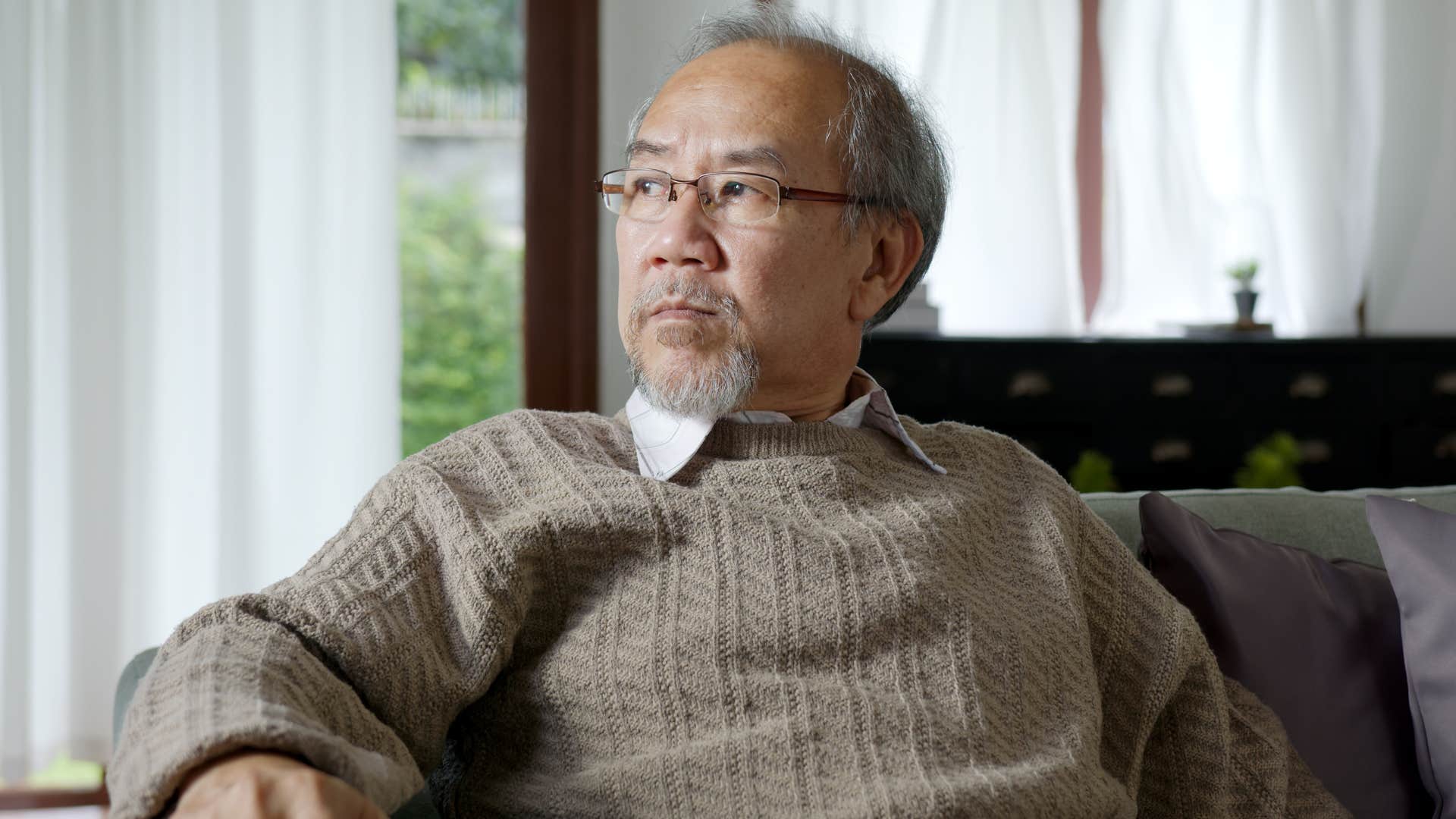 Chay_Tee | Shutterstock
Chay_Tee | Shutterstock
Growing apart from friends, grappling with a shrinking social circle, and struggling with social isolation can all be experiences that prevent older people from taking good care of themselves as they age.
Especially for people who are retired or not working in an office setting anymore, having the regular pressure to get ready for the day can make it harder to motivate themselves into getting ready and practicing basic health, hygiene, and self-care habits.
Considering depression and isolation can also make self-care and hygiene more difficult, according to experts from Harvard Health, it's not surprising that many people who stop taking good care of themselves as they get older feed into a cycle of disappointment, low-self esteem, and isolation that's harder to break free of without consistent healthy habits.
2. They live alone
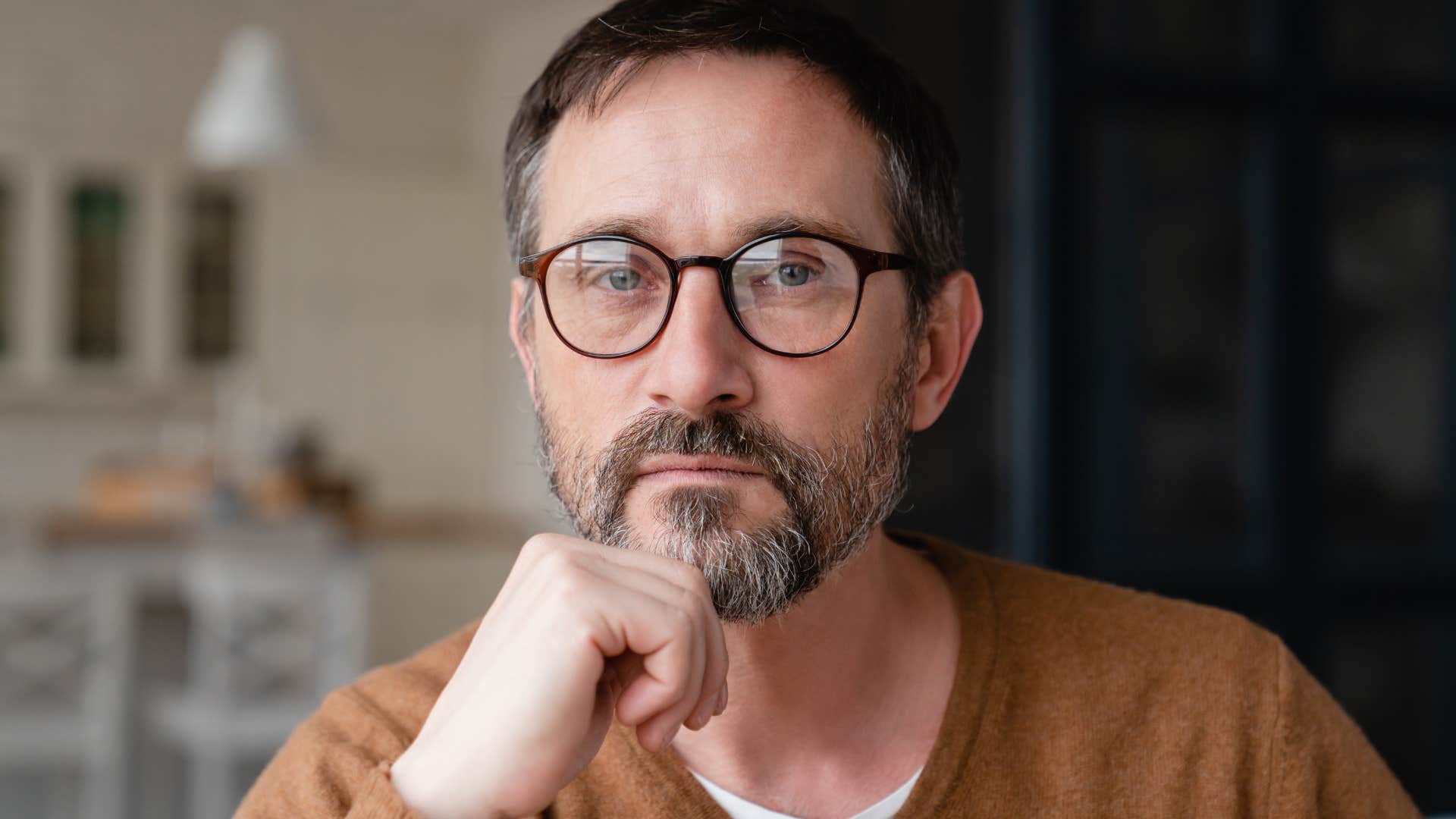 Inside Creative House | Shutterstock
Inside Creative House | Shutterstock
Without a partner or roommates, many older people may feel less inclined to get ready for the day, especially entering into retirement or working from home, when it can be easy to slip into a routine where basic hygiene and self-care is consistently overlooked.
Coupled with the familiarity, comfort, and convenience of this routine lacking self-care, they sacrifice their self-esteem subtly, in ways that build up into more problematic issues in the long-term, like physical impairments or a worsened mental health.
It's been proven that a simple daily task like forgoing an outfit or hygienic routine that makes you feel more confident can actually hurt your self-esteem and continue the cycle of lacking healthy habits that feed into depression and isolation.
So, even if you live alone or don't have a partner sharing space with you, cultivate habits and hygiene routines that help you to feel your best — it's not about impressing anyone but yourself.
3. They struggle with health conditions
 fizkes | Shutterstock
fizkes | Shutterstock
Cognitive impairment, chronic health conditions, and worsening physical abilities can all make taking care of yourself harder, even simple tasks like taking a shower, brushing your teeth, or moving your body. Of course, not moving your body regularly, especially for older individuals, can have detrimental effects on both mental and long-term physical health.
If you're struggling with agility or physical movement, consider some of the easy ways to promote your physical health, like taking a short walk, reducing time spent sitting down during the day, and even shifting your diet to account for nutrition and balance you're not getting as frequently with exercise.
4. They're depressed
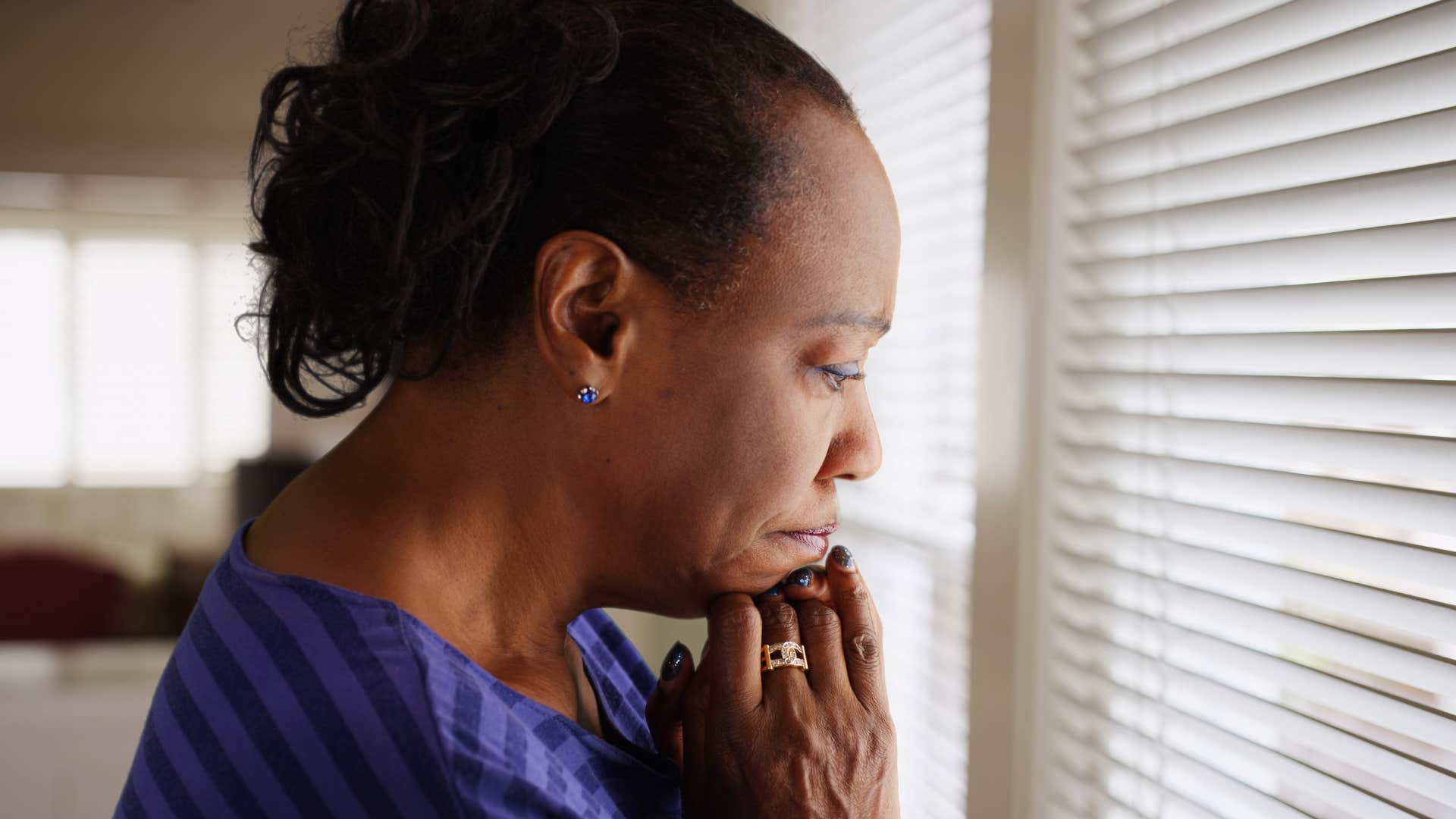 Rocketclips, Inc | Shutterstock
Rocketclips, Inc | Shutterstock
According to the National Institute on Aging, the social isolation and loneliness epidemic that many older individuals tend to experience at disproportionate rates is largely associated with a higher risk of depression.
As people age, they naturally end up spending more time alone, and if they're not going out of their way to seek out more social interactions or cultivating a healthy routine that compensates for lacking emotional, physical, and psychological benefits of social engagement, they're more likely to experience depressive symptoms.
In older individuals, these symptoms can vary, but there are reasons people who stop taking care of themselves as they get older usually have — grappling with social isolation, emotional turmoil, and loneliness in ways that make basic hygienic tasks and self-care seem much harder.
5. They struggle to set new goals
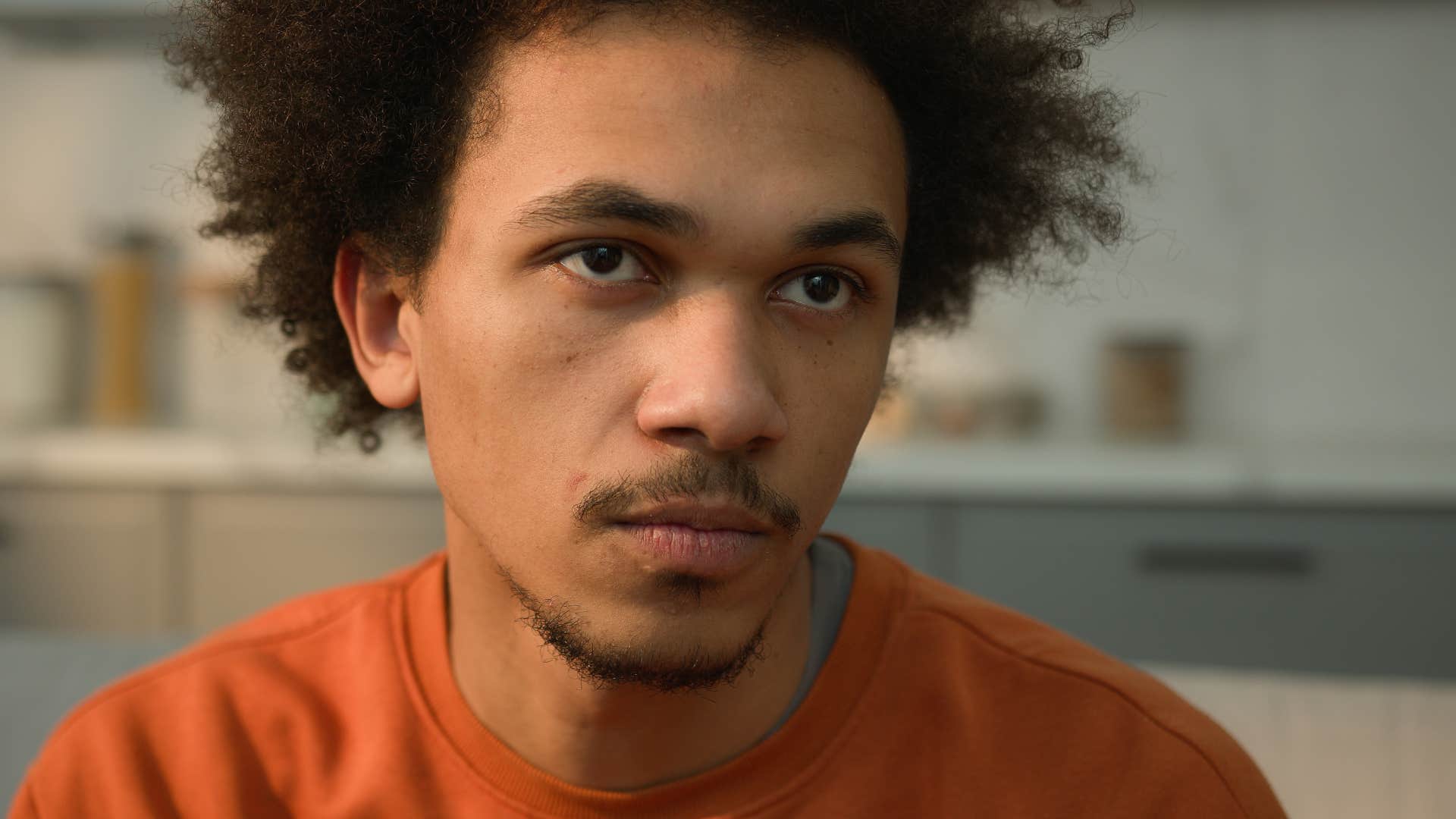 MAYA LAB | Shutterstock
MAYA LAB | Shutterstock
Many people, as they get older, struggle to set new goals and continue crafting new aspirations in the next stages of their lives. Whether it's misguided beliefs about aging or societal pressures to remain stagnant, many older people stop taking good care of their mental and physical well-being by avoiding new goals, excitement, and personal growth.
Everyone yearns for meaning and purpose, but when older individuals forgo setting new goals, reflecting on their values, and pursuing new interests, they miss out on the benefits — like better self-esteem, motivation, and general well-being — associated with the practice, both on a daily and long-term basis.
6. They have different priorities
 Andrii Nekrasov | Shutterstock
Andrii Nekrasov | Shutterstock
As you get older and take on a multitude of new responsibilities and obligations, it can be easy — especially if you already struggle with poor habits or low self-esteem — to overlook yourself for the sake of productivity.
You trade self-care or fulfilling alone time for the sake of your family's needs. You sacrifice sleep for a couple extra hours of work. You skip a morning routine for the sake of making breakfast for your kids, starting your commute, or doing a side hustle. Everyone has different priorities, but it's important for aging individuals to make time for themselves.
Self-care is especially important for older adults. It's fundamental to protecting cognitive abilities, sustaining physical and mental well-being, and helping people to foster intentionally thoughtful connections to combat isolation.
7. They don't feel pressure to 'fit in'
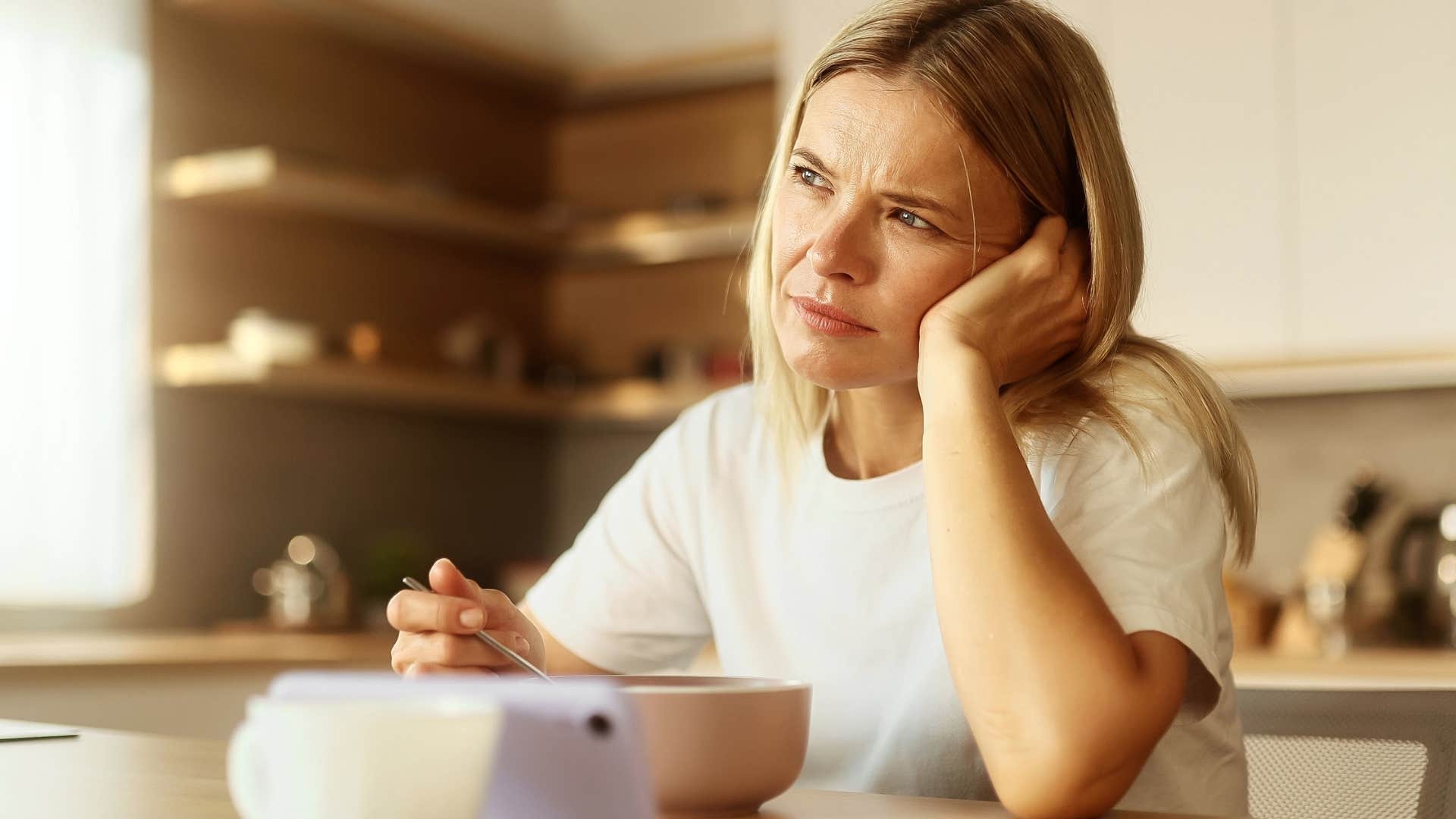 Tonuka Stock | Shutterstock
Tonuka Stock | Shutterstock
Of course, the older you get, the less likely you are to feed into a toxic comparison culture or feel pressure to "fit in." However, it's possible to take care of yourself and adopt self-care habits without being motivated by external validation.
Truly confident people with a secure sense of self-esteem take good care of themselves for no other reason than self-care. They feed into healthy habits, make time for their hobbies, and build routines that make their own lives more fulfilling, not to "fit in" or compete.
However, some people — many of whom might have taken care of themselves, put effort into their appearance, or adopted hobbies like working out or moving their bodies — may have only done it for the sake of external praise and validation. So, as they get older and comparison culture becomes less relevant, they don't feel incentivized to look after themselves in the same manner.
8. They're less independent
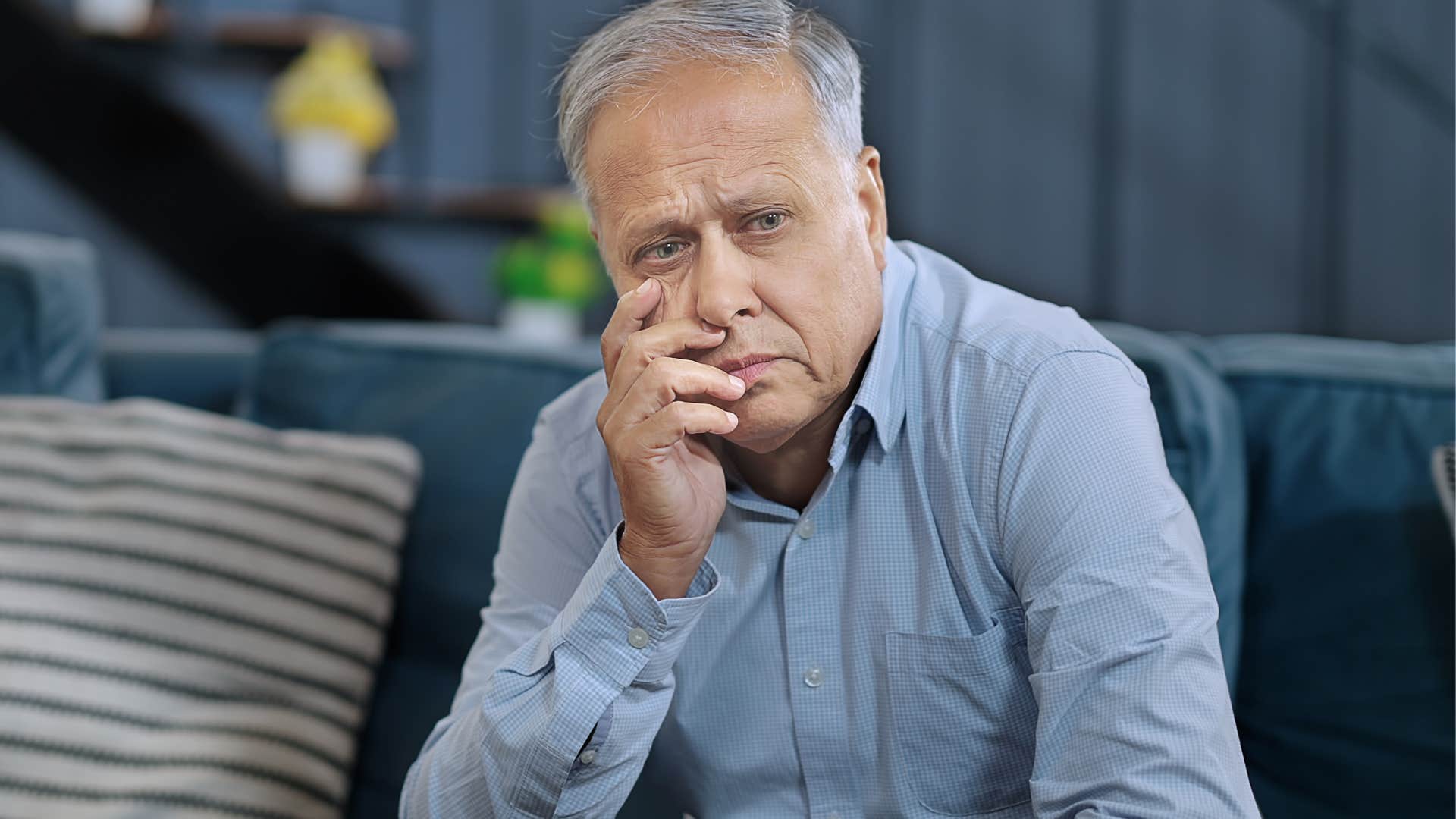 Raushan_films | Shutterstock
Raushan_films | Shutterstock
While social isolation and depressive symptoms can make practicing great hygiene more difficult, people who stop taking good care of themselves as they get older may also be struggling with independence.
Whether it's cognitive, psychological, or physical changes, older individuals may have a hard time independently completing basic tasks like bathing themselves, getting dressed, or even making food and feeding themselves.
Of course, this lack of independence can also feed into depression that makes hygiene and self-care harder. It's frustrating and disorienting to feel like there are limits to the things you were once able to do without reservation.
9. They believe that self-care is selfish
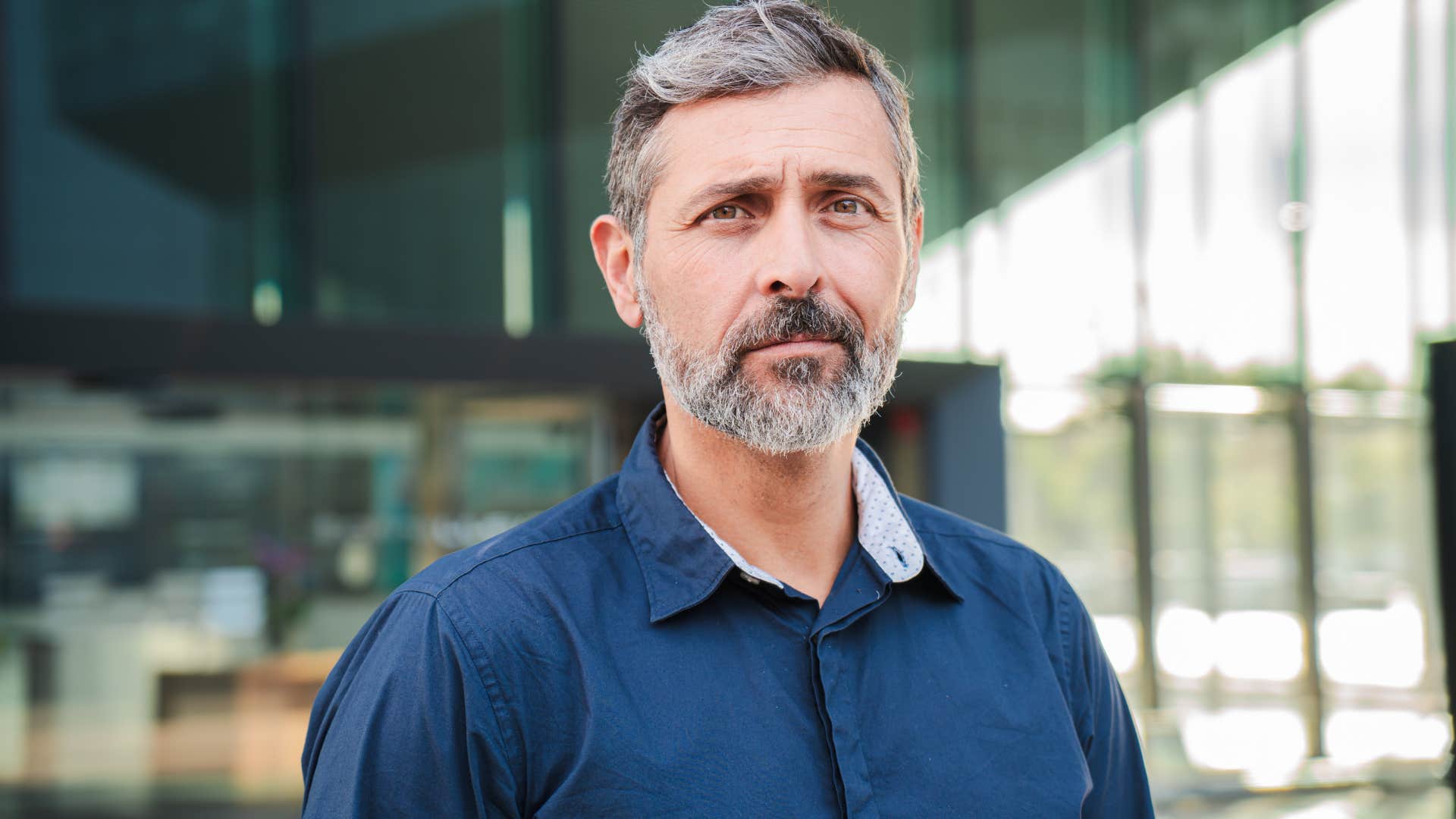 Jose Calsina | Shutterstock
Jose Calsina | Shutterstock
Many older generations of people who grew up alongside transactional parenting styles — think: reward and punishment structures — or an intense "hustle culture" have misguided beliefs about how they take care of themselves. They believe self-care — like investing in nutrition, positive affirmations, and even subtle things like taking a bath — is only appropriate when they've "earned" it.
However, self-care is essential for everyone to prioritize. We can't show up for others, do our best work, or feel confident without taking good care of our physical, emotional, and mental health.
10. They just don't have the time
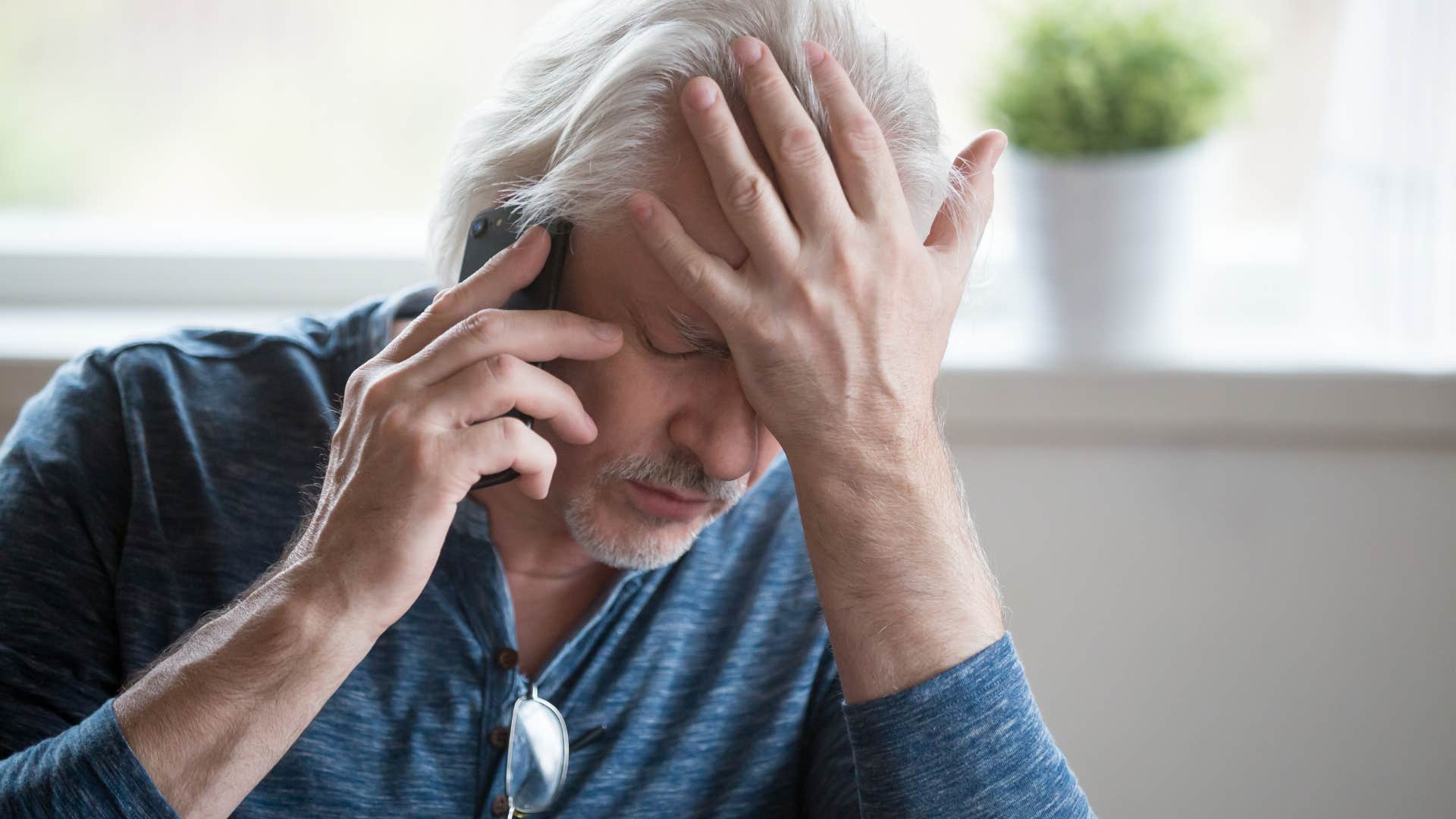 fizkes | Shutterstock
fizkes | Shutterstock
Many people who stop taking good care of themselves as they get older tend to believe they don't have the time. They not only make excuses for why they can't show up for themselves, they may even subconsciously overschedule themselves or take on more work to avoid the vulnerability of true self-care.
Of course, the truth is, there's always time to prioritize yourself. Sometimes, it means setting uncomfortable boundaries, saying "no" more often, or restructuring your priorities, but taking good care of yourself should always be something you're actively pursuing.
Even if that means adopting some mindfulness practices, going on a short walk before starting your day, or taking a bubble bath after a stressful day, people who stop taking good care of themselves as they get older tend to overlook the simple things, making excuses about their responsibilities and time to avoid having to get personally invested in their own well-being.
11. They're burnt out
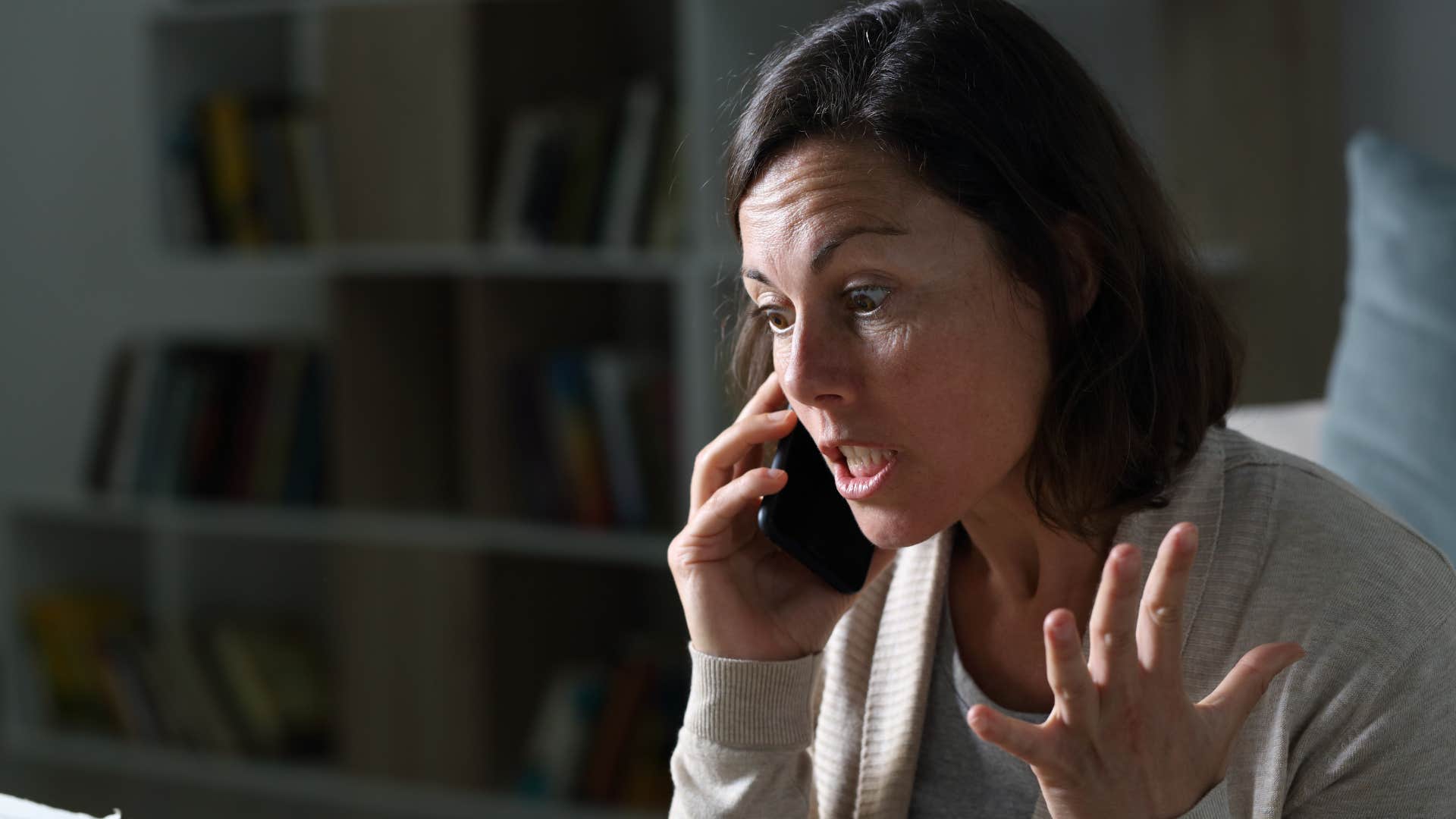 Pheelings media | Shutterstock
Pheelings media | Shutterstock
Whether it's chronic stress from work responsibilities, an overload of family obligations, or even "caregiving burnout" — something that Gen Xers tend to experience at disproportionate rates as they age — it's one of the reasons people who stop taking good care of themselves as they get older usually have.
They're grappling with the consequences of burnout like internal emotional turmoil, depression, anxiety, and physical fatigue that can make even the simplest daily tasks feel unbearable.
Zayda Slabbekoorn is a staff writer with a bachelor's degree in social relations & policy and gender studies who focuses on psychology, relationships, self-help, and human interest stories.

